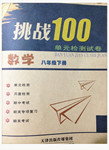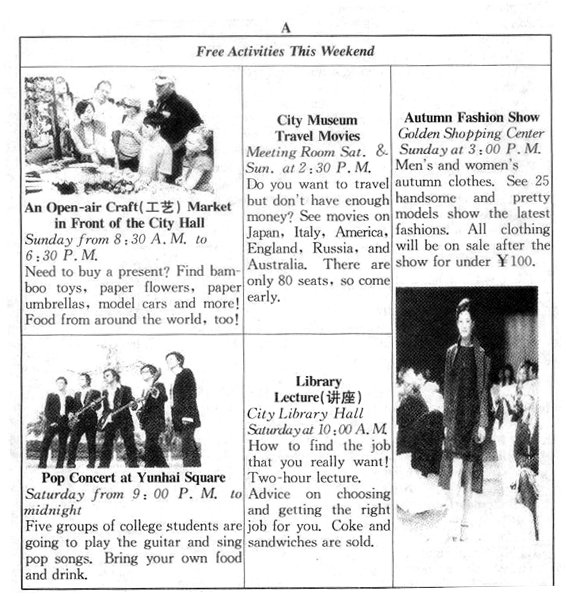题目内容
Every day in China, about 200 million children go to school. Many of them take school buses.
Last year, a serious school bus accident happened in China, when a nine-seat minibus crashed. There were 62 children inside , and 21 of them died. To stop such accidents, the Center Government decided to strengthen(加强)the rules for school buses.
On April 5, the Government published new rules about school safety. These new rules are much stricter than the old ones.
Under the new rules, local governments must make sure that students attend nearby schools or boarding (寄宿的)schools to reduce traffic risks(风险). Also, local governments must help kids in the countryside reach their school buses.
From now on ,school buses have a speed limit(限速)of 80km per hour on highways and 60km per hour on normal roads. While on the road, other cars must let school bus go first.
The new rules also say that school buses must never be overloaded(超载).
There are many other rules as well. A school bus must have than seven seats. On each bus, there must be at lest one adult(成年人)to keep an eye on the kids. Each school bus must have a fire extinguisher(灭火器),a first aid kit(急救箱)and a GPS.
小题1:What does the underlined word“attend”mean?
A. join in B. drop out C. go to
小题2:Under the new rules, which of the following is TRUE?
A. School buses can be overloaded when necessary.
B. School buses can go first when there are other cars.
C. School buses must driver 80km/h or less on normal roads.
小题3: According to the new rules, a school bus must have the following EXCEPT .
A. more than seven seats.
B. a parent of one of the students.
C. a fire extinguisher and a first aid kit.
小题4:The government made new rules for school buses because .
A. school buses in China were not safe enough before.
B.62 students died in a school bus accident last year
C. 200 million children in China go to school by bus every day.
小题5:What’s the best title of this passage?
A. How to Avoid Bus Accidents
B. Safety First on School Buses
C. Bus Speed Limit Is Necessary
Last year, a serious school bus accident happened in China, when a nine-seat minibus crashed. There were 62 children inside , and 21 of them died. To stop such accidents, the Center Government decided to strengthen(加强)the rules for school buses.
On April 5, the Government published new rules about school safety. These new rules are much stricter than the old ones.
Under the new rules, local governments must make sure that students attend nearby schools or boarding (寄宿的)schools to reduce traffic risks(风险). Also, local governments must help kids in the countryside reach their school buses.
From now on ,school buses have a speed limit(限速)of 80km per hour on highways and 60km per hour on normal roads. While on the road, other cars must let school bus go first.
The new rules also say that school buses must never be overloaded(超载).
There are many other rules as well. A school bus must have than seven seats. On each bus, there must be at lest one adult(成年人)to keep an eye on the kids. Each school bus must have a fire extinguisher(灭火器),a first aid kit(急救箱)and a GPS.
小题1:What does the underlined word“attend”mean?
A. join in B. drop out C. go to
小题2:Under the new rules, which of the following is TRUE?
A. School buses can be overloaded when necessary.
B. School buses can go first when there are other cars.
C. School buses must driver 80km/h or less on normal roads.
小题3: According to the new rules, a school bus must have the following EXCEPT .
A. more than seven seats.
B. a parent of one of the students.
C. a fire extinguisher and a first aid kit.
小题4:The government made new rules for school buses because .
A. school buses in China were not safe enough before.
B.62 students died in a school bus accident last year
C. 200 million children in China go to school by bus every day.
小题5:What’s the best title of this passage?
A. How to Avoid Bus Accidents
B. Safety First on School Buses
C. Bus Speed Limit Is Necessary
小题1:C
小题2:B
小题3:B
小题4:A
小题5:B
试题分析:在中国,每天约有200万儿童上学。他们中的许多人乘校车。去年,严重校车事故使政府决定加强校车的规则。4月5日,政府公布有关学校安全的新规则。这些新规则比旧的要严格得多。在新规则下,地方政府必须确保学生就读附近的学校或寄宿制学校,减少交通风险。此外,地方政府要帮助孩子在农村达到他们的校车。从现在起,学校巴士有速度限制,其他车辆必须让校车先走。新规则也说,校车绝不能超载。还有许多其他的规则。每个校车必须有灭火器,急救包和GPS。
小题1:词义理解推断题,根据文中语句“Under the new rules, local governments must make sure that students attend nearby schools or boarding (寄宿的)schools to reduce traffic risks(风险).”理解可知。此句的含义是学生必须到就近的学校去上学,故attend的含义是go to故选C。
小题2:句意理解归纳题,根据文中语句“The new rules also say that school buses must never be overloaded(超载)”理解可知。无轮什么时候严禁校车超载,故A是错误的。
小题3:细节理解题,根据文中语句“A school bus must have than seven seats. On each bus, there must be at lest one adult(成年人)to keep an eye on the kids. Each school bus must have a fire extinguisher(灭火器),a first aid kit(急救箱)and a GPS.”理解可知。校车必须配备的物品或人员中没有让学生的家长参加,故选B。
小题4:理解归纳题,根据文中语句“To stop such accidents, the Center Government decided to strengthen(加强)the rules for school buses.”理解可知。中国政府制定新规的主要元音是校车的现状很危险故选A。
小题5:标题理解归纳题,根据文中语句理解可知,次短文的主要内容就是涉及的校车的安全问题,故选B。
点评:此文是篇新闻报道,考查的内容较多。先浏览阅读理解题目,将问题按归纳概括题、具体细节题、词语释义题、推理判断题等题型分门别类,以便熟悉文章所要考查的信息点和知识点。这样,由于带着问题去阅读,阅读时就重点突出、速度加快、准确率高。需要注意的是,浏览阅读理解题目时不要看问题的选项,以避免增加干扰。

练习册系列答案
 挑战100单元检测试卷系列答案
挑战100单元检测试卷系列答案
相关题目
 B.
B.  C.
C. 
